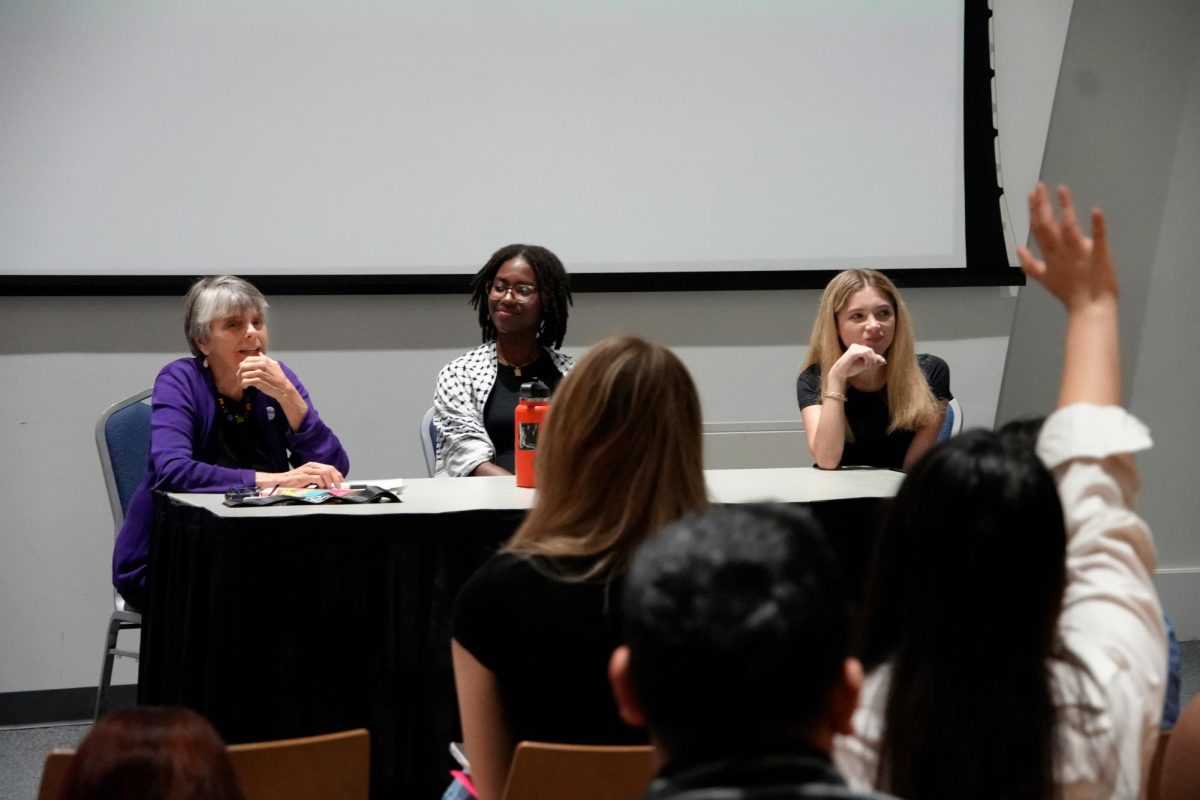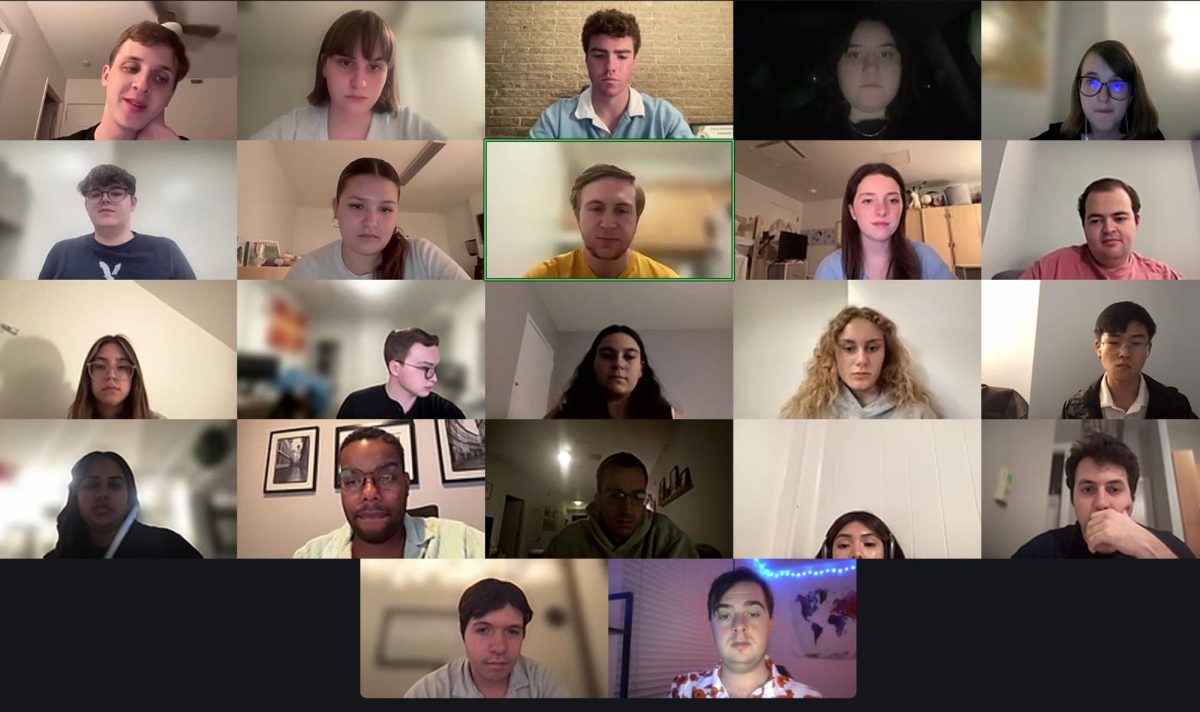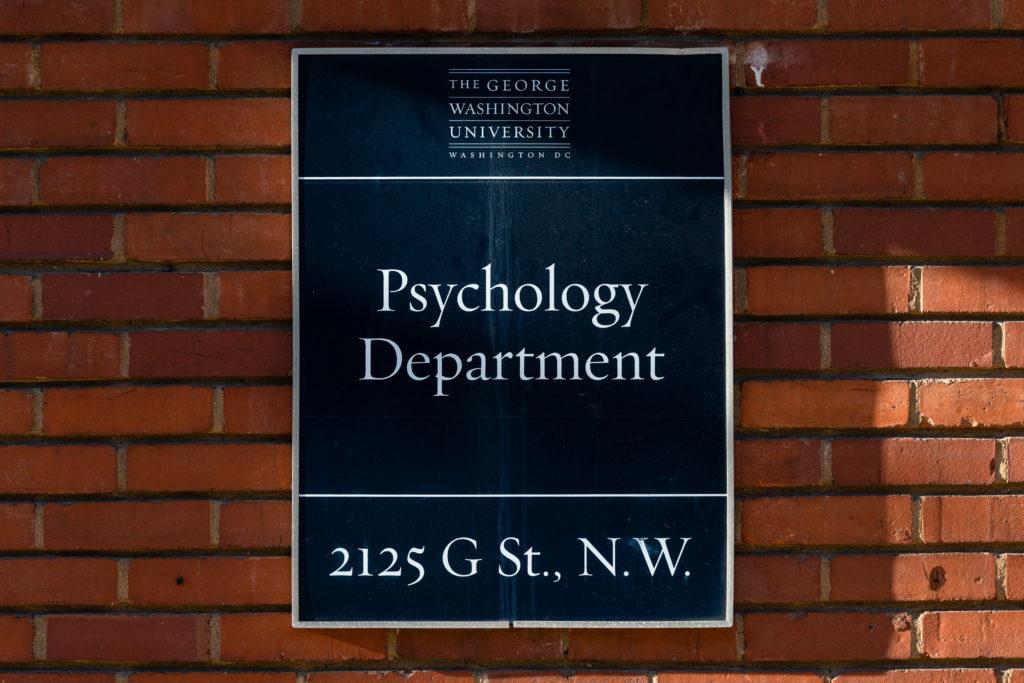This post was written by Hatchet staff writer Lauren Gomez.
Students at the School of Business got a lesson on both business and science Wednesday night at the annual Robert P. Maxon lecture series.
George Scangos, the CEO of biotech company Biogen Idec., spoke on the achievements and complexities in the biotechnology industry. Scangos shared lessons and anecdotes from throughout his career as a professor of biology at Johns Hopkins University and experiences serving on the board of the Boston Museum of Science.
Here are some takeaways:
1. Optimism in biotech
Scangos discussed medical issues that medical companies are trying to tackle like hemophilia and multiple sclerosis and how they are combating them in their labs and by donating medication.
He said interdisciplinary collaborations in the sciences are key players in medical advancements because each area of expertise can take on a different aspect of health care.
“We are sitting at a time of unprecedented potential for improving health care around the world,” Scangos said. “The advances in biology, chemistry, physics, and data sciences are all coming together.”
2. Necessary risk-taking
Scangos said a major mission of the biotech industry is to cure Alzheimer’s disease. He said in the past it’s been difficult to reach that goal, partially because both patients and scientists didn’t understand the disease.
Scangos said he had his company, Biogen, make a “risky” investment to develop a drug called Aducanumab that offers promising results in a struggling field.
“If this works, given the number of people with Alzheimer’s disease, we can’t make enough,” he said. “So we’re making a production plant, which cost $1.5 billion, at risk. This is a $2.5 billion bet. It’s certainly a good bet to make, but there are no guarantees.”
The CEO gave other examples of risks and sacrifices by Biogen, like increases on the price of one multiple sclerosis drug to help fund the research of others, and the 11 percent of the Biogen workforce he was forced to layoff to continue his company’s innovate research and development initiatives.
“We’ve made a few tough calls at Biogen,” Scangos said. “And we did that because we needed to be able to pay for the development of these drugs, and at the same time generate enough earnings to keep our investors happy.”
3. Unfairness in American health care
Scangos said that in the American health care system there is no incentive to produce medicine inexpensively. He said the international community is free-riding on an overly-expensive system, and treatments are no longer affordable for the people who need them.
“The U.S. consumers are in a tough spot,” Scangos said. “It’s not fair for the US to pay so much more that other wealthy countries that can also afford to pay.”




